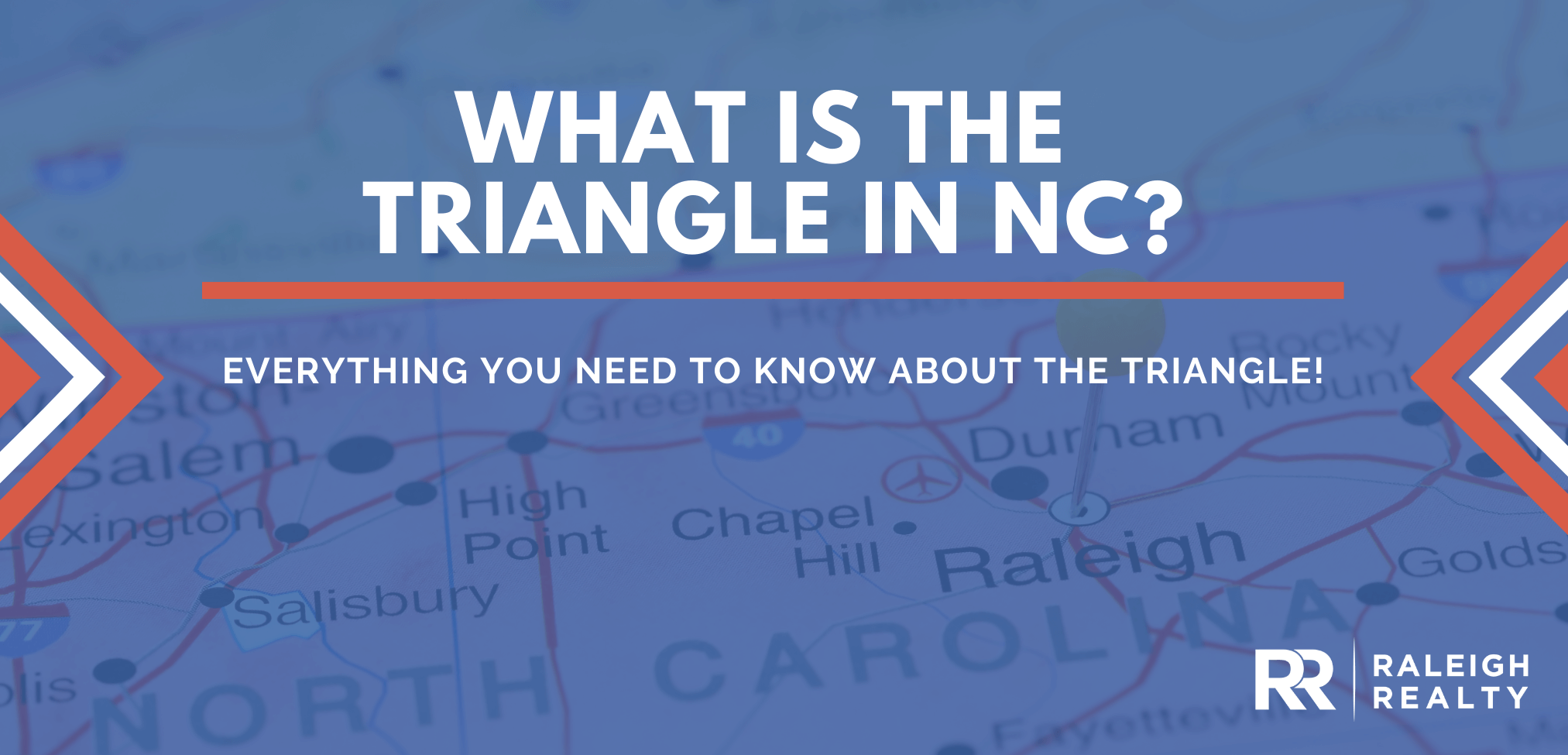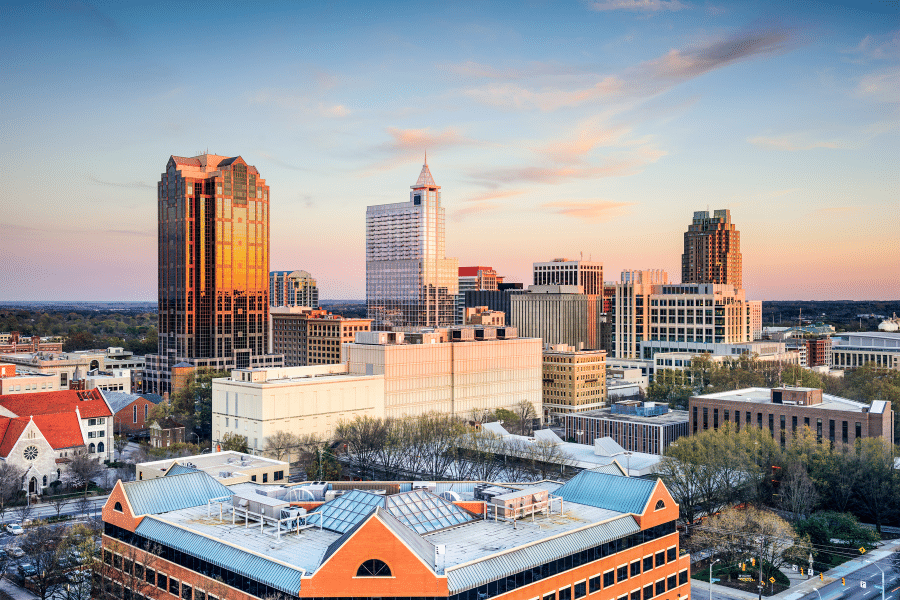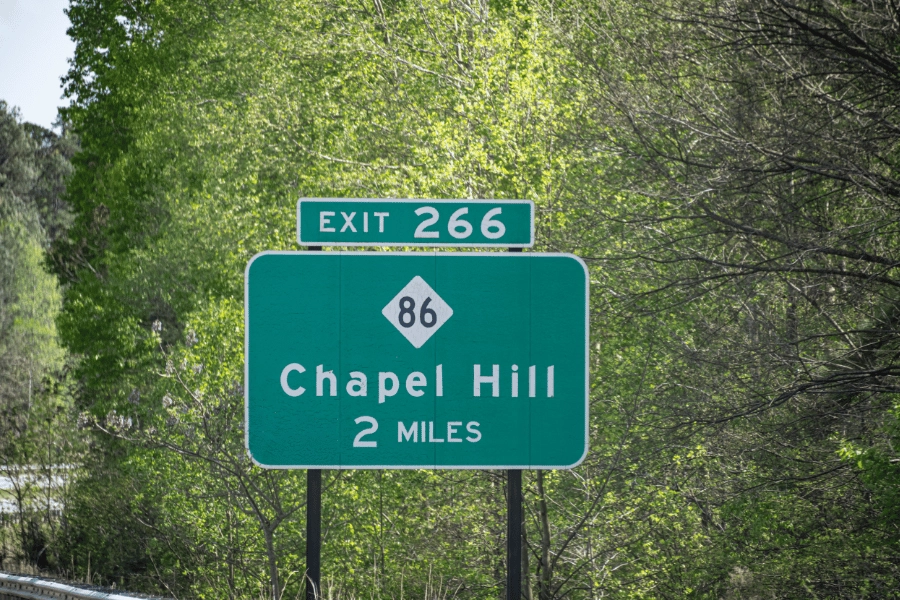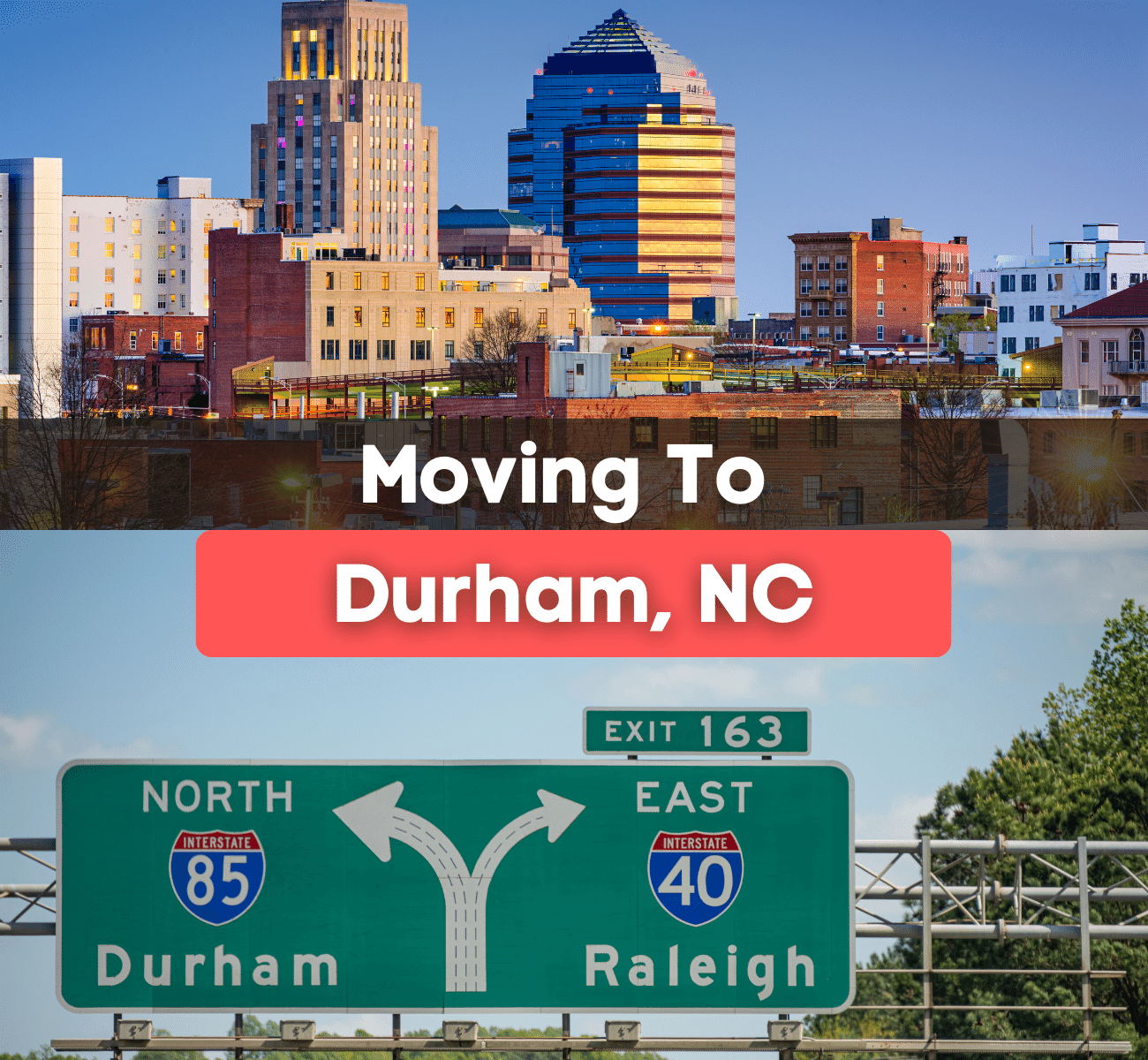Discover the Triangle: Your Gateway to North Carolina's Premier Living Destination
Are you wondering what the Triangle is in North Carolina? Here is everything you need to know about the Triangle if you are considering a move to the area.
Are you considering relocating to North Carolina? If so, you've likely heard about "the Triangle," a dynamic metropolitan region that has become one of the Southeast's most desirable places to live, work, and raise a family.
The Research Triangle area in North Carolina is named after the three prestigious universities of Duke, UNC-Chapel Hill, and North Carolina State University.
These three institutions are located in the three cities of Raleigh, Durham, and Chapel Hill, which, if connected by an imaginary line on a map, would form a Triangle. This is why the area is referred to as the Triangle area of NC.
The current estimated population of the Triangle is estimated to be around 2,368,947 in the combined statistical area. This makes it the second-largest combined statistical area in North Carolina behind Charlotte.
At Raleigh Realty, we're passionate about helping newcomers discover what makes this area so special. Let's explore everything you need to know about calling the Triangle home.
Keep reading to learn more about the Triangle!
1. What Exactly Is the Triangle?
The Triangle gets its name from the geographic formation created by three major cities: Raleigh (the state capital), Durham, and Chapel Hill. These three points form a roughly triangular shape on the map, connected by major highways and unified by shared economic prosperity, educational excellence, and cultural vibrancy.
The region encompasses several counties, including Wake, Durham, Orange, and parts of Chatham, Franklin, Granville, Harnett, Johnston, and Lee counties. The Triangle is one of the fastest-growing regions in the United States, making it an ideal place for families and young professionals to call home.
.png)
2. Research Triangle Park
No discussion of the Triangle is complete without highlighting Research Triangle Park (RTP), one of the largest research parks in the world. Established in the 1950s, RTP spans over 7,000 acres and houses more than 300 companies, including major corporations like IBM, Microsoft, Cisco, Lenovo, and GlaxoSmithKline.
What makes RTP truly special is its proximity to three world-renowned universities: Duke University in Durham, North Carolina State University in Raleigh, and the University of North Carolina at Chapel Hill. This unique "triple threat" of academic excellence creates an unparalleled ecosystem for research, development, and innovation.
The park specializes in biotechnology, pharmaceuticals, information technology, telecommunications, and environmental sciences. For professionals in these fields, RTP offers extraordinary career opportunities, competitive salaries, and the chance to work alongside some of the brightest minds in their industries.
Oftentimes, Research Triangle Park is referred to as a miniature Silicon Valley thanks to the density of technology companies that operate in the area. Thanks to RTP, the surrounding cities of Cary, Morrisville, and Apex have seen a large uptick in their economic growth.
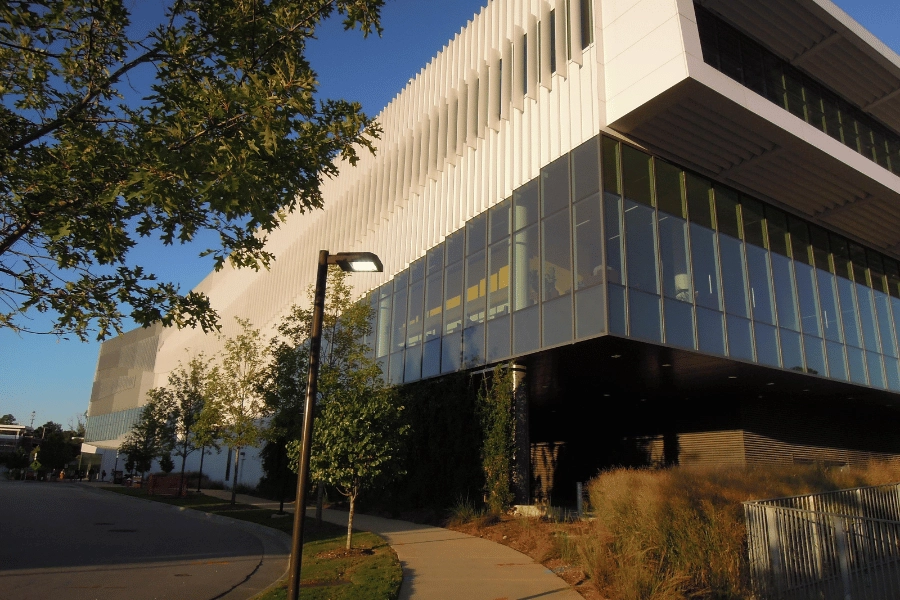
3. RDU International Airport
One of the Triangle's greatest assets is Raleigh-Durham International Airport (RDU), consistently ranked among the top airports in the country for customer satisfaction and efficiency. Located conveniently between Raleigh and Durham, RDU provides non-stop flights to over 80 destinations worldwide.
The airport's strategic location and excellent service make it incredibly easy to travel for business or pleasure. Whether you're flying to New York for a weekend getaway, Los Angeles for a business meeting, or London for an international adventure, RDU's modern facilities and efficient operations ensure a smooth travel experience.
For professionals who travel frequently, living in the Triangle means being within 30 minutes of a major international airport. This is a significant advantage that many other metropolitan areas can't match.
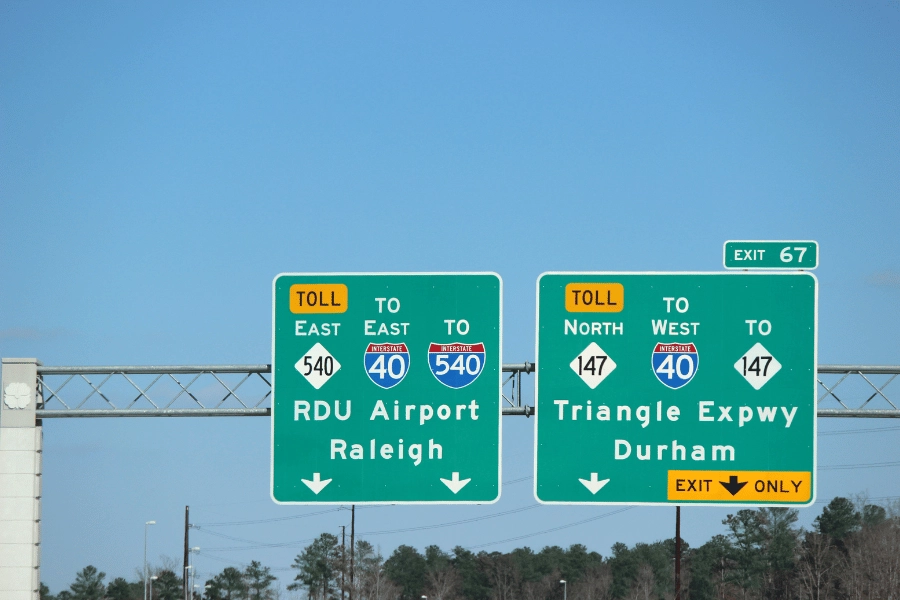
4. Triangle Housing Options
The Triangle's housing market offers something for everyone, from young professionals and growing families to retirees and empty nesters.
Many people are moving to the Triangle from California or one of the colder cities in the north, thanks to the affordability, the weather, and the overall quality of life that North Carolina offers.
Each area within the Triangle has its own distinct character and housing options:
Raleigh
As the state capital, Raleigh offers a perfect blend of urban amenities and Southern charm. Downtown Raleigh has experienced tremendous growth, with modern condominiums and converted loft spaces attracting young professionals.
Historic neighborhoods like Oakwood and Mordecai offer charming older homes with character, while newer developments in North Raleigh provide spacious suburban family homes.
Durham
Durham has undergone a remarkable transformation, evolving from its tobacco industry roots into a hip, progressive city. The downtown area features beautifully restored historic buildings converted into trendy lofts and apartments.
Established neighborhoods in Durham like Trinity Park and Watts-Hillandale offer tree-lined streets with craftsman-style homes and bungalows.
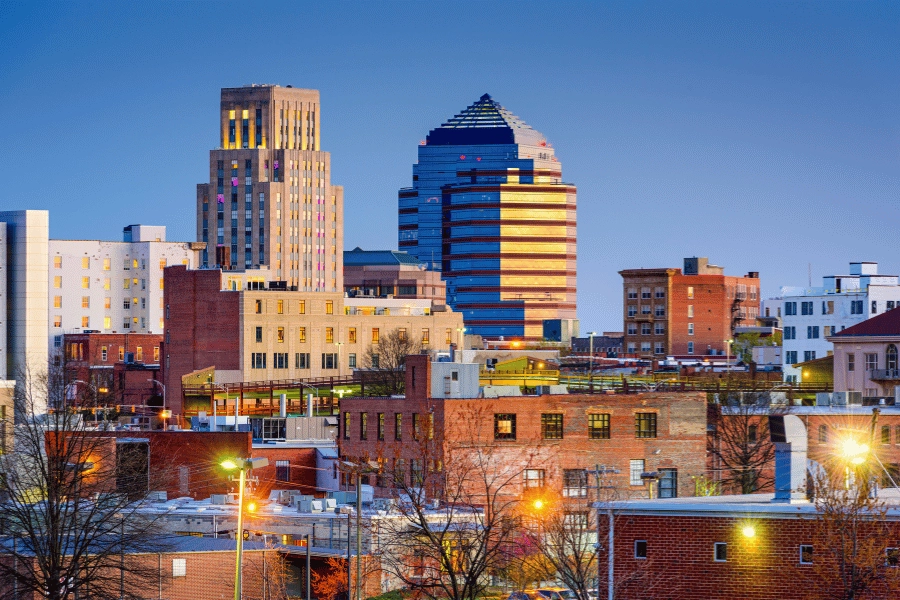
Chapel Hill
Home to the University of North Carolina, Chapel Hill maintains its quintessential college town atmosphere. The area offers everything from student-oriented apartments to family-friendly neighborhoods with excellent schools.
The town's commitment to preserving green spaces and its walkable downtown area make it particularly appealing to families.
.png)
Surrounding Communities
Beyond the three main cities, the Triangle includes numerous suburban communities like Cary, Apex, Morrisville, and Carrboro. These areas offer excellent schools, family-friendly neighborhoods, and easy access to the region's employment centers.
5. Unique Advantages of Living in the Triangle
Educational Excellence
The Triangle is home to some of the nation's most prestigious educational institutions. Beyond the three major universities, the region boasts excellent public school systems, with Wake County Public Schools being one of the largest and most innovative in the country. For families prioritizing education, few regions can match the Triangle's offerings.
Economic Diversity
Unlike many metropolitan areas that depend heavily on a single industry, the Triangle's economy is remarkably diverse. Major sectors include technology, biotechnology, pharmaceuticals, healthcare, government, education, and financial services. This diversity provides economic stability and numerous career opportunities across various fields.
Quality of Life
The Triangle consistently ranks high in "best places to live" surveys, and it's easy to see why. The region offers:
- Four distinct seasons with a mild climate
- Abundant parks, greenways, and recreational opportunities
- Rich cultural amenities, including museums, theaters, and music venues
- Excellent healthcare facilities, including Duke University Hospital and UNC Hospitals
- A thriving food scene with award-winning restaurants
- Professional sports teams (Carolina Hurricanes)
Cost of Living
While housing costs have increased due to the area's popularity, the Triangle still offers a favorable cost of living compared to other major metropolitan areas with similar amenities and opportunities.
Your dollar goes further here than in cities like Washington D.C., Boston, or San Francisco, while still providing access to big-city amenities and opportunities.
6. Getting Around the Triangle
The Triangle's transportation infrastructure is designed to connect the three main cities efficiently. Major highways, including I-40, I-440, I-540, and US-1, create a network that makes commuting between cities manageable. The region also offers:
- GoTriangle public transportation system connecting the three cities
- Extensive greenway and bike trail networks
- Ride-sharing services and bike-sharing programs in urban areas
- Plans for future light rail connections
7. Climate and Outdoor Recreation
The Triangle enjoys a humid subtropical climate with four distinct seasons, making it ideal for outdoor enthusiasts. Summers are warm but rarely unbearable, winters are mild with occasional snow, and spring and fall offer absolutely gorgeous weather.
There are also plenty of outdoor recreation activities available throughout the area. With easy access to both the mountains and the beach for weekend getaways, living in the Triangle offers the best of both worlds.
Check out these opportunities for outdoor recreation:
- Over 180 parks and 150 miles of greenways
- Jordan Lake and Falls Lake for water activities
- Umstead State Park for hiking and mountain biking
- Golf courses throughout the region
.png)
8. Moving to the Triangle Area
If you're considering relocating to the Triangle, here's what you can expect:
Job Market
The unemployment rate consistently stays below national averages, with strong demand for skilled professionals in technology, healthcare, research, and education.
Welcoming Atmosphere
With so many transplants from other regions, the Triangle has developed a welcoming culture for newcomers. Professional networking groups, social clubs, and community organizations make it easy to establish connections.
Infrastructure Growth
The region continues to invest in infrastructure improvements, including road expansions, new schools, and enhanced public transportation options.
Methdology
Data was sourced from the U.S. Census Bureau, the Raleigh-Durham International Airport, and Research Triangle Park to determine what the Triangle is in North Carolina.
FAQs
What three NC cities make up the Research Triangle?
The Research Triangle is comprised of Raleigh, Durham, and Chapel Hill. The name comes from the area's three major research universities located in the cities, which are NC State University, Duke University, and UNC-Chapel Hill.
What does the Triangle mean in NC?
The Triangle in North Carolina is the hub of research and biotech companies in the region. It also refers to the three major research universities located in Raleigh, Durham, and Chapel Hill that, when connected, make a triad.
What is the richest part of the Triangle, NC?
Raleigh is home to many expensive neighborhoods, including Oakwood, North Hills, Boylan Heights, Hayes Barton, and Brier Creek.
Ready to Explore the Triangle?
The Triangle is one of the most sought-after places to live in the country. This region in North Carolina has successfully balanced rapid growth with a high quality of life. People of all ages want to live here for its economic opportunity, higher education options, urban sophistication, and southern hospitality.
If you are ready to explore the Triangle and discover what it can offer you and your family, we would love to help. Contact Raleigh Realty today to start your journey toward calling this remarkable region home.
Our local expertise, combined with our commitment to personalized service, will ensure that your transition to Triangle living is as smooth and successful as possible.
